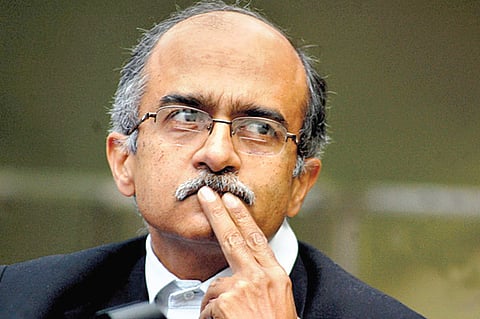

The controversy surrounding the 2G spectrum allocation refuses to go away.
For the last couple of years it has been making headlines in the media. Following the 2G scam, a number of other corruption cases have surfaced, which led to the demand for setting up of a Lokpal – an independent agency to investigate and initiate action against corrupt political leaders and government officials.
It all started with then Telecom minister A Raja allotting 2G spectrum to mobile phone companies at throwaway prices. Instead of an auction, he adopted the old government policy of first-come-first-served. He and other officials were alleged to have bent rules and not followed proper procedure so that some companies got illegal benefit.
These companies are alleged to have paid Raja and others bribes of a few crore rupees.
It is somewhat like railway reservation, which also follows the first-come-first-served policy. People who come first and stand in the queue are given the tickets. Instead, if officials and touts allow people to break the queue and give them train tickets in return for bribes, they are being unfair to others standing in the queue. What is worse is that the persons allotted tickets illegally then sell them to others at a much higher price.
CAG’s Loss Estimates
The government’s auditor – called CAG (Comptroller and Auditor General) – looked into the way the spectrum was allotted and concluded that the government had got much less money than it should have, and would have if the spectrum had been auctioned properly. The CAG estimated that the government should have got over `1,76,000 crore, which it did not, so it was described as a loss.
Raja and others were arrested and a criminal case was registered against them. The court will have to conduct the trial to decide whether they did anything wrong. If they are proved to have done wrong, they will be punished.
Supreme Court Verdict
In another development political leader Subramanian Swamy and civil society activist and lawyer Prashant Bhushan challenged Raja’s decisions in the Supreme Court.
After lengthy arguments, the Supreme Court held that Raja’s decisions regarding allocation of 2G spectrum were wrong because they favoured some mobile companies over others. The Court said his decisions were against public interest and cancelled the licences issued by him.
The Court then directed the government to auction the spectrum.
Last week the government auctioned the spectrum as per the Supreme Court’s directions. As per the CAG the government should have got `1.76 lakh crore in the auction. It got much less – some spectrum remained unsold with no company willing to bid for it, and the spectrum that was sold brought the government only `9,407 crore.
Controversy erupted once again. The government said that the auction outcome clearly proved the CAG’s loss estimates to be wrong and criticised the Opposition parties and anti-corruption civil society groups such as Team Anna for launching a campaign against the government based on the faulty CAG report. They countered this saying that the government and mobile companies had wilfully caused the auction to fail to prove the CAG report wrong.
Implications
It is now becoming clear that the 2G scam is not an open-and-shut case, as many common people thought and believed. The reality is not black or white. There are many grey areas. No one is fully right or fully wrong.
Whether Raja and others took bribes to bend the rules is to be decided by the court. As far as the allocation of 2G licences is concerned Raja defends his action saying that giving spectrum to mobile companies at low rates helped lower mobile call charges.
Due to this even poor people could afford mobile connections.
Indirectly, the government gained much more from taxes on mobile bills. It was a win-win situation, he argues.
The CAG is partially right about the government losing money by not auctioning the spectrum. But one cannot say with certainty how much the government lost. It may have been much less than the CAG estimate.
The Supreme Court is right in concluding that the Raja did not follow the procedure, and cancelling the licences issued by him. But the Supreme Court was not right in directing the government to adopt auction of all government resources so that the government gets maximum revenue. Of course, the Supreme Court had to revise its view on this later.
The government may have proved the CAG estimates to be incorrect, but it has failed to raise enough money to meet its expenditure on welfare schemes and development plans.
Now the government is planning to auction again before March 2013 and make some more revenue.
The issue will keep coming up in the run-up to the 2014 general elections.